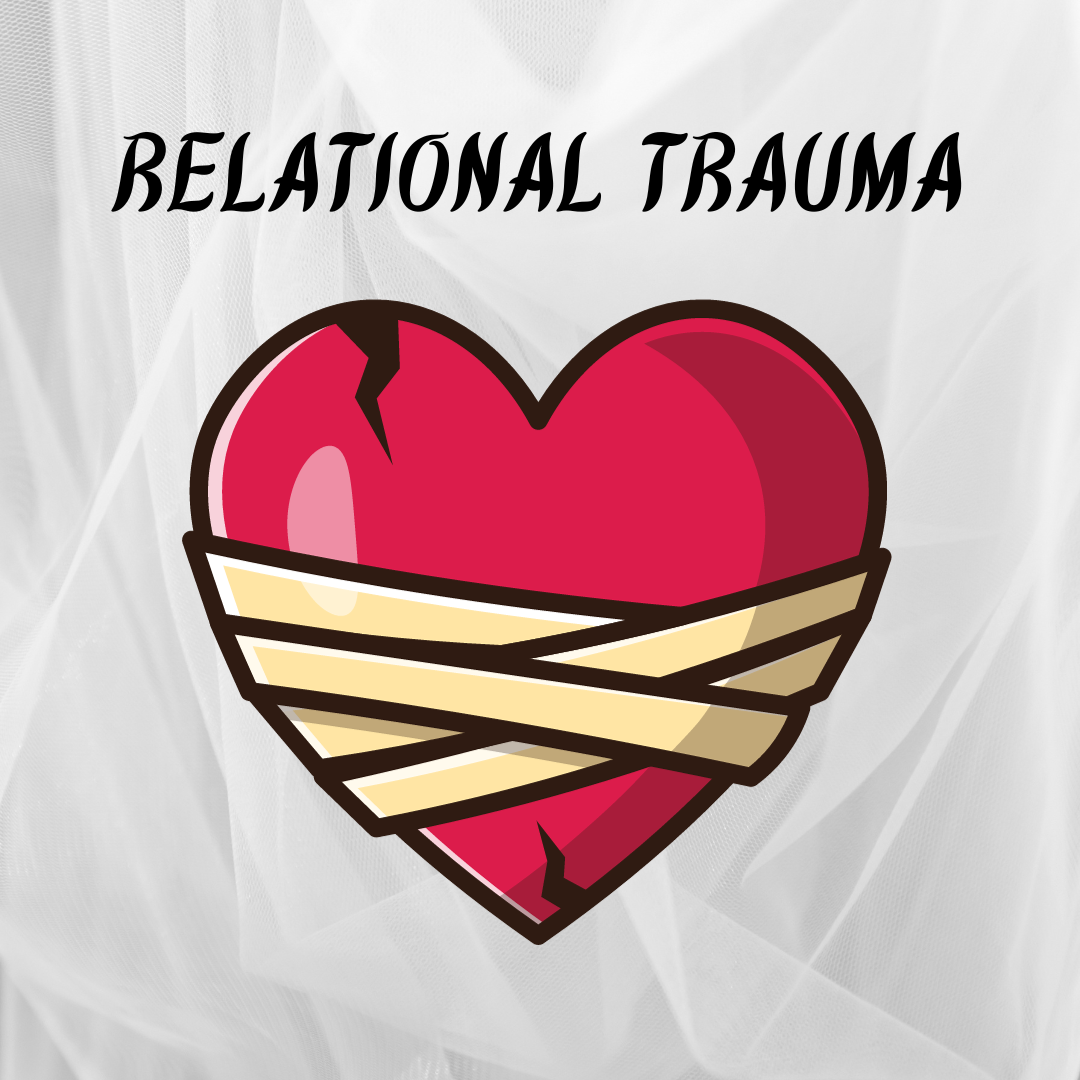Happy new year, dear readers! We are grateful for another year, a fresh start filled with many possibilities.
Have you heard of ‘Relational trauma’? This is a term describes the psychological and emotional effects of experiencing harm or betrayal within a close relationship. It could also be as a result of neglect or abandonment. This kind of trauma can occur in childhood or adulthood, and it can have lasting impacts on one’s mental health and well-being. When a child experiences abandonment, it affects how they see themselves and what they believe they deserve in a relationship later in life. Let us explore the causes, signs, and healing of relational trauma.
Causes of relational trauma
Relational trauma can be caused by various forms of abuse, neglect, abandonment or enmeshment within a close relationship. Enmeshment is where relationships lack clear and healthy boundaries. In such cases, the ‘closeness’ can be detrimental to the wellbeing of the parties involved. Some of the things that lead to relational trauma are:
- Physical, sexual, or emotional abuse by a parent, caregiver, partner or friend
- Neglect of physical or emotional needs by a parent, caregiver, partner or friend
- Abandonment by a parent, caregiver, partner or friend (physically or emotionally)
- Enmeshment with a parent, caregiver, partner or friend (lack of healthy boundaries and autonomy)
These experiences can disrupt the development of trust, attachment and self-esteem in the person who suffers from relational trauma. They can also create distorted beliefs about oneself, others and the world. Some of these distorted beliefs are:
- “I am not worthy of love or respect”
- “Others are not trustworthy or reliable”
- “The world is a dangerous and hostile place”
Signs of relational trauma
Relational trauma can manifest in various ways, depending on the type, severity and duration of the traumatic experiences. Some common signs are:
- Anxiety, depression or mood swings
- Difficulty regulating emotions or coping with stress
- Dissociation or detachment from reality
- Low self-esteem or self-worth
- Impaired sense of identity or self
- Difficulty forming or maintaining healthy relationships
- Fear of intimacy, rejection or abandonment
- Patterns of self-sabotage, avoidance or isolation
- Substance abuse or other addictive behaviors
- Symptoms of post-traumatic stress disorder (PTSD) or complex PTSD, such as flashbacks, nightmares, hypervigilance or avoidance of trauma reminders
Healing from relational trauma
Healing from relational trauma is possible, but it requires time, patience and professional support. Some of the steps involved in healing are:
- Seeking therapy from a qualified mental health professional who specializes in trauma and relational issues. Therapy can help the person process their traumatic memories, challenge their negative beliefs, develop coping skills and rebuild their sense of self and trust. I personally recommend a minimum of four sessions for any kind of recovery process.
- Engaging in self-care activities that promote physical, mental, and emotional well-being, such as exercise, mindful meditation, hobbies or relaxation techniques such as deep breathing.
- Building a support network of people who are supportive, empathetic, and respectful. These could be family, friends or support groups.
- Setting healthy boundaries and limits with people who are toxic, abusive, or triggering, and learning to say no to things that are harmful or uncomfortable.
- Exploring one’s identity, values, and goals, and pursuing activities that are meaningful and fulfilling – self awareness.
- Practicing self-compassion and forgiveness, and acknowledging one’s strengths and achievements.
Relational trauma can be a painful and challenging experience, but it does not have to define one’s life. With the right help and resources, one can heal from relational trauma and enjoy a happier and healthier life.
The start of a new year is a good time as any to begin the healing process for anyone struggling with relational trauma. As always, I am here to support your efforts to LIVE BY DESIGN.
References:
Relational Trauma: Mental Health Effects, Examples, and Healing 10 Common Patterns Seen in Unresolved Relational Trauma Relational Trauma: Effect on Relationships, Signs, Healing Relational Trauma – BrightQuest Treatment Centers



